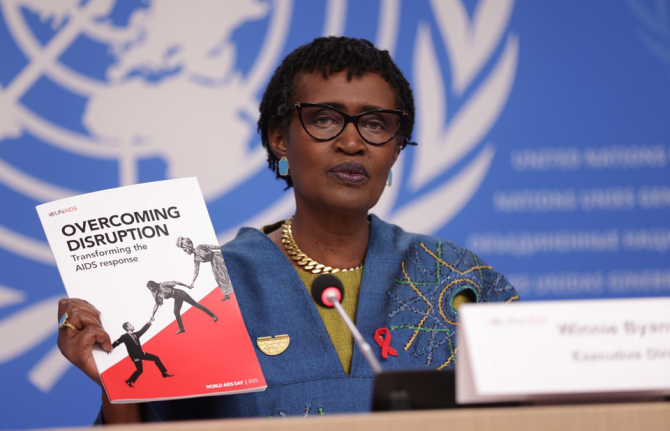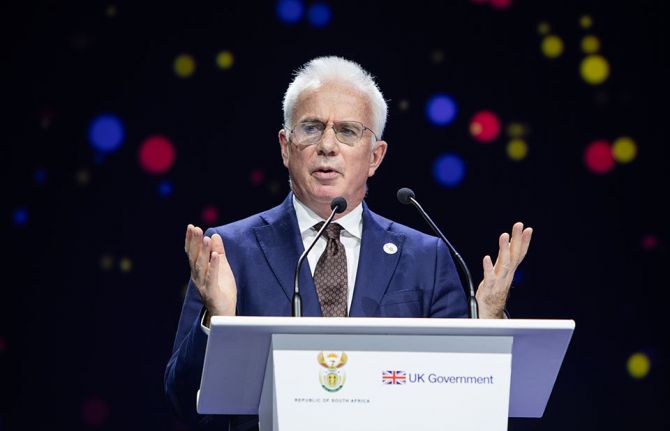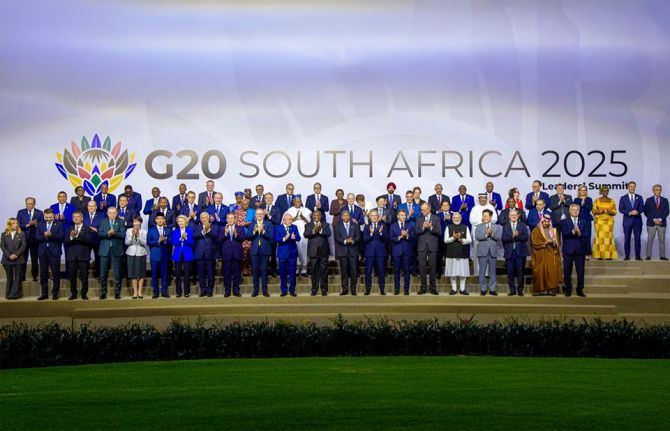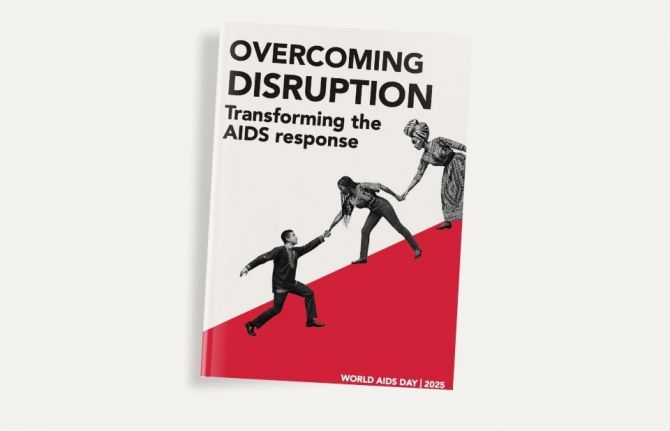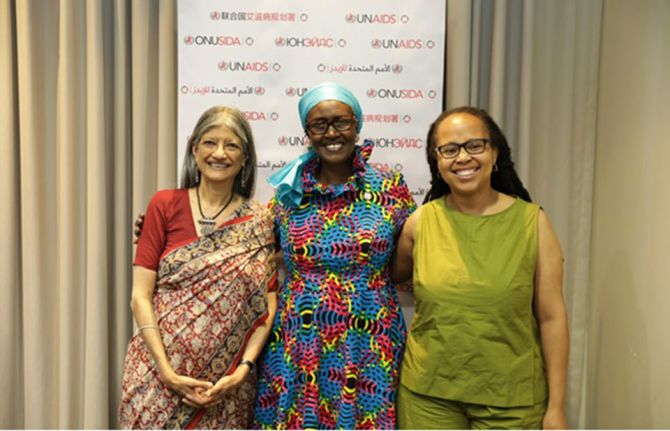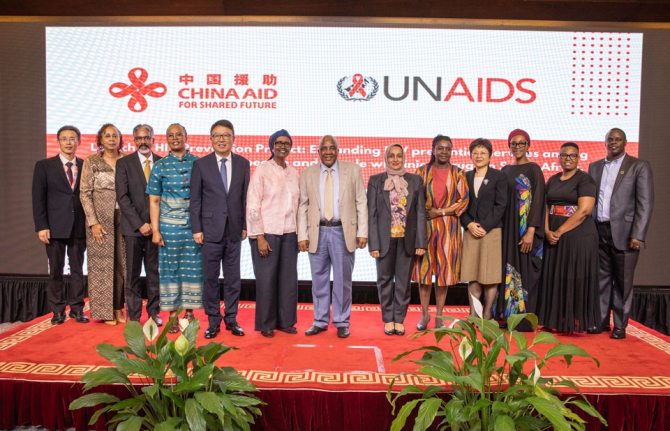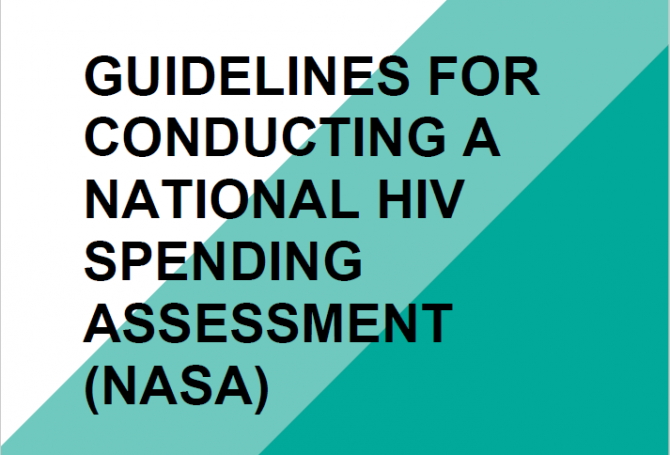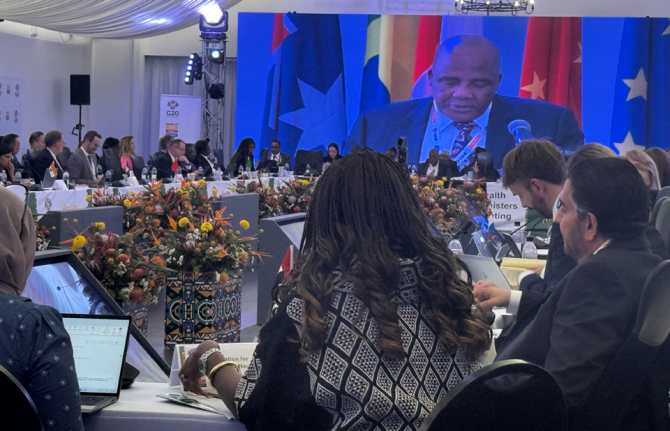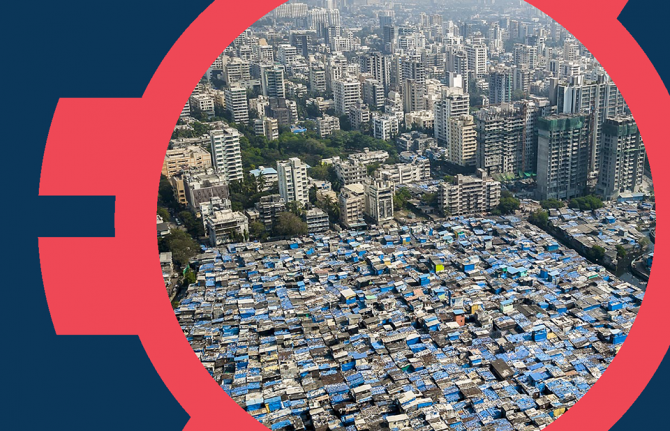
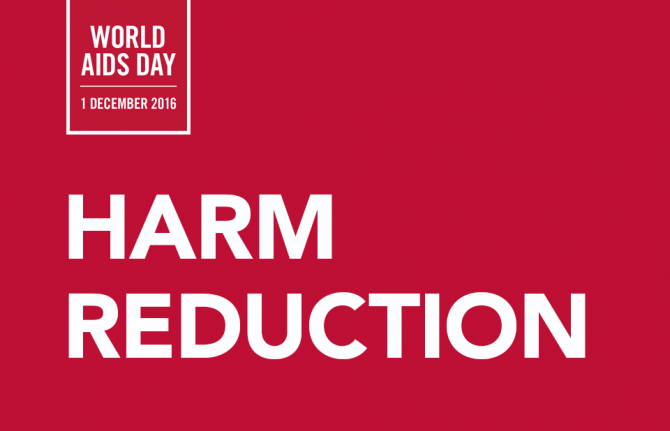
Update
Harm reduction
10 October 2016
10 October 2016 10 October 2016People who inject drugs are among the key populations most at risk to acquire or transmit HIV. Yet they are also among those with the least access to HIV prevention, care and treatment services because their drug use is often stigmatized and criminalized.
The tools and strategies required to improve the health and lives of people who use drugs are well known and readily available. Needle–syringe programmes reduce the spread of HIV, hepatitis C and other bloodborne viruses. Opioid substitution therapy and other evidence-informed forms of drug dependence treatment curb drug use, reduce vulnerability to infectious diseases, and improve uptake of health and social services.
The overwhelming body of evidence on the effectiveness of harm reduction, including in prisons and other closed settings, is the basis for a comprehensive package of interventions recommended by the World Health Organization (WHO), the United Nations Office on Drugs and Crime (UNODC) and the Joint United Nations Programme on HIV/AIDS (UNAIDS) for preventing the spread of HIV and reducing other harms associated with drug use. Few countries have achieved sufficient coverage of harm reduction services, however.
Hands up for #HIVprevention
Related

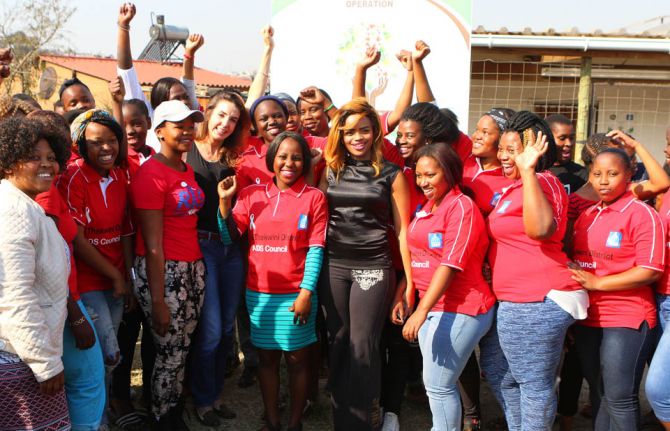
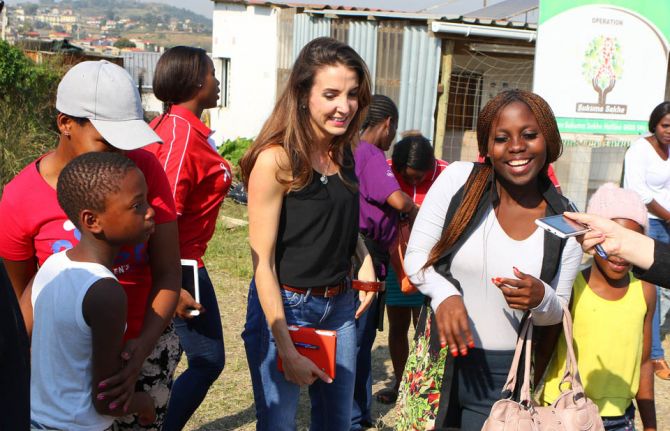
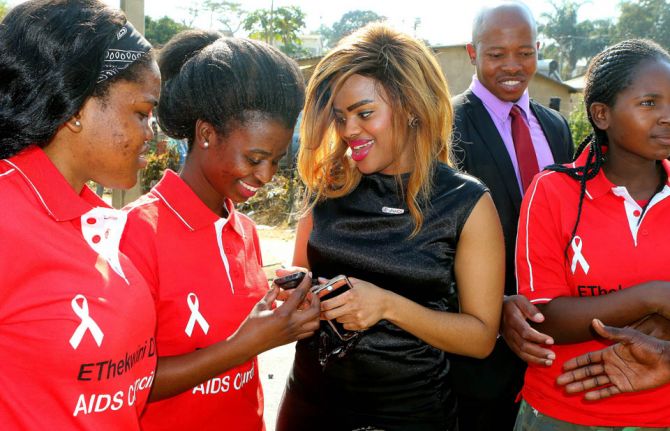
Update
Princesses learn first-hand the realities faced by young women growing up in South Africa
05 October 2016
05 October 2016 05 October 2016Adolescent girls with Rise Young Women’s Club emblazoned on their bright red polo shirts sang and danced to welcome the delegation visiting the community centre of Ward 11, a small township of more than 40 000 people on the outskirts of Durban, South Africa. The community centre is part of the province’s innovative Operation Sukuma Sakhe and acts as the hub for coordinating community-based health, social and educational outreach activities in the ward—the smallest division in South Africa’s governmental structure.
The Rise Young Women’s Club uses the centre as a base from which to engage, empower and support adolescent girls and young women in their community to grow up healthy and safe. The club organizes weekly meetings to discuss the challenges that young women and adolescent girls face at home, at school and in the community and stages plays and community dialogues to educate the broader community. As an offshoot of the popular Soul City infotainment campaign, they follow a weekly soap opera on TV with materials that help support their discussions around HIV, sexual and reproductive health and rights, gender equality and violence against women.
The principals in the visiting delegation were Princess Tessy of Luxembourg, who is UNAIDS Global Advocate for Young Women and Adolescent Girls, and Princess Sikhanyiso of Swaziland, who recently spoke passionately about gender inequality at the United Nations General Assembly High-Level Meeting on Ending AIDS. The princesses travelled to South Africa for a joint visit before the start of the 21st International AIDS Conference in order to learn more about how HIV is affecting the lives of young women and adolescent girls in South Africa.
The princesses visited the packed one-room centre to hear the ward counsellor explain the main challenges affecting the community—unemployment, community safety, inadequate education and teenage pregnancy. Rise Young Women’s Club members moved the audience by disclosing their first-hand experiences of school exclusion, family and community rejection, gender-based violence and lack of opportunities for personal development. However, their close peer support and empowerment through the club was clear. Club members invited the delegation to walk to their homes in the informal settlements surrounding the community centre, where they met their families and neighbours to gain a deeper understanding of the daily realities of growing up in peri-urban South Africa.
The Rise Young Women’s Club and its staff provide essential mentoring and motivation for young women and adolescent girls in the community through an innovative peer education and support group model.Unfortunately, long-term support for the programme has not been secured.
One-stop care centre
The next visit was to the Mahatma Gandhi Memorial Regional Hospital, known for its one-stop care centre—the Thuthuzela centre—for people who have been subjected to rape or gender-based violence South Africa has one of the highest rates of gender-based violence in the world. The Mahatma Gandhi Thuthuzela care centre hospital alone processes more than 120 rapes cases per month, mostly young women and children. prides itself in turning victims into survivors. The self-contained centre, which is set away from the main hospital in order to ensure confidentiality and promote a safe and comforting environment, takes direct referrals from police stations in the district 24 hours a day.
Specially trained nursing staff, police officers, doctors, counsellors and social workers are on hand to provide all the immediate medical, forensic and support services needed, minimizing the trauma for victims in the immediate post-violence period and helping to ensure rapid recovery and resolution for each individual. They cover the big issues, but take care to look after the small details—teddy bears, big and small, and a plethora of toys lie in a box by the examination rooms to comfort child victims or the victim’s children.
By coordinating the work of medical staff, police and the prosecution authority, the centre also helps to ensure that the correct evidence is collected and proceduresare followed to secure the conviction of the perpetrators.
Help my sisters
The final visit for the princesses was the TB/HIV Care Association’s Durban office, a comprehensive wellness programme for sex workers with an emphasis on peer counselling. Their two vans, turned into mobile health clinics, cruise the bustling streets of Durban distributing condoms, offering testing for HIV and other sexually transmitted infections and providing treatment and referrals.
Getting ready to go out on an outreach visit, one of the outreach team members explained that like many of her peer educator colleagues she used to engage in risky sexual behaviour in order to increase income when work was slow, putting her at a much greater risk of HIV infection and other sexually transmitted infections.
Since 2011, the TB/HIV Care Association has provided health screening and preventive services through a multidisciplinary team made up of nurses, social workers, sex workers and volunteers, reaching more than 20 000 sex workers across five sites in South Africa—a feat the Durban site manager, Robin Ogle, is particularly proud of considering the high HIV prevalence among female sex workers in South Africa which ranges between 40 to 60% depending on the region. Trained as a nurse with 18 years of hospital work under her belt, she has witnessed a marked improvement in the health and well-being of sex workers under her care. Noting that building relationships with sex workers had been key, she showed the UNAIDS delegation the in-house pharmacy and the “friendly rooms”, a seal of approval reassuring patients that the health-care staff are non-judgemental and that everyone will be treated with dignity. Part of the DREAMS initiative, funded by the United States President’s Emergency Plan for AIDS Relief, the centre in Durban has just started a pilot project to provide access to pre-exposure prophylaxis (PrEP) for sex workers. To date, 44 women have been given access to PrEP through the centre since June 2016.
Quotes
“What an incredible experience to see and hear so many different people’s life stories and to see how so many work so closely within the communities. Thank you for trusting us and opening up.”
“This trip has opened my eyes to a life very different from my own and it has made me realize the many, many challenges young women face.”
“I sit in an office working on countless reports and statistics and cold hard facts far removed from the reality of the field, so this day allowed me to grow professionally and spiritually.”
“Because time is money, many lack basic knowledge which is why I am here to help my sisters.”
“I am a young sex worker but I have dreams too.”
Multimedia

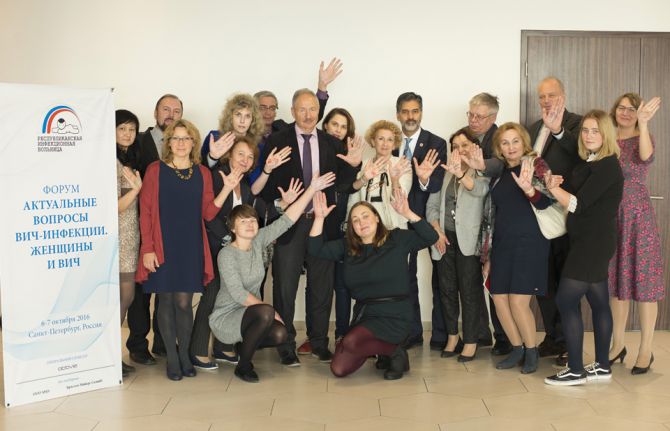
Update
Russian experts and civil society leaders join UNAIDS’ Hands Up #HIVprevention campaign
13 October 2016
13 October 2016 13 October 2016Participants at the HIV and Women Forum, held in Saint Petersburg, Russian Federation, on 6 and 7 October, joined the new UNAIDS campaign Hands up for #HIVprevention and took a series of photos illustrating what needs to be done to strengthen HIV prevention.
Leading HIV experts from 37 Russian regions and representatives of civil society and UNAIDS addressed the issues facing women affected by the country’s HIV epidemic during the annual forum. The Russian Federation has the largest HIV epidemic in the region, with more than 100 000 new HIV infections reported by the government in 2015. In eastern Europe and central Asia, 1.5 million people were living with HIV in 2015, up from 1 million in 2010.
One of the key topics discussed at the annual forum, organized by the Ministry of Health of the Russian Federation, was how to deal with women’s vulnerability to HIV. Russian experts talked about the feminization of the HIV epidemic in the Russian Federation, where the government reports that more than 38% of all new cases of HIV infection in 2015 were among women.
Women face multiple challenges and barriers to accessing HIV services, such as stigma, discrimination, gender stereotypes, barriers to sexual and reproductive health, and violence. The forum highlighted the essential role of nongovernmental and civil society organizations in promoting women’s rights and increasing access to HIV prevention, treatment, care and support services.
The 2016 Political Declaration on Ending AIDS highlights that, globally, women and girls are disproportionately affected by HIV and bear a larger share of caregiving for family members affected by HIV.
Quotes
“The alarming increase of HIV infection among women cannot be ignored and must be recognized as a priority in the implementation of HIV programmes in the Russian Federation.”
“It doesn't matter if we are community leaders or wives or mothers. It doesn't matter how we were infected with HIV. It only matters that we refuse to be the nameless, faceless statistics of HIV in the Russian Federation.”
“Fast-Track targets to end the AIDS epidemic will not be reached without breakthroughs in women health, women's rights and women's empowerment.”
Region/country
Related

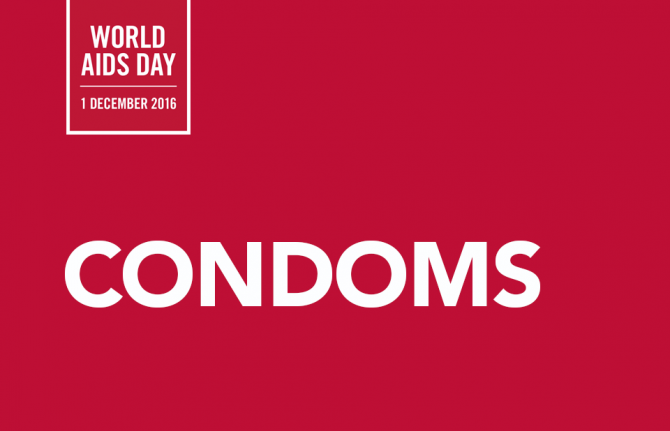
Update
Condoms
03 October 2016
03 October 2016 03 October 2016Condoms are at the centre of a combination HIV prevention approach; they are also cost-effective tools for preventing other sexually transmitted infections and unintended pregnancies. An estimated 45 million HIV infections have been averted through condom use globally since 1990. Achieving the global condom target for 2020 would avert 3.4 million new infections. The cost per infection averted would be approximately $450, well below the lifetime cost of providing antiretroviral treatment.
PREVENTION GAPS
- Stagnation of international and domestic funds for condom procurement and programming.
- An annual gap of more than 3 billion male condoms in sub-Saharan Africa.
- Inconsistent condom use within many populations and locations in greatest need, including challenges for women to negotiate condom use.
- Insufficient availability of lubricants and female condoms.
WAY FORWARD
- Increase resources for condom procurement, distribution and promotion.
- Provide male and female condoms in combination prevention packages.
- Diversify condom products, including provision of female condoms alongside male condoms and lubricants.
- Develop new approaches to increase condom use and to enhance the positive perception of condoms among the various populations in need.
- Engage communities in condom provision and use innovative service provision mechanisms.
In 2015, an estimated 1.9 million [1.7 million–2.2 million] adults (15+) were newly infected with HIV—the vast majority through sexual transmission—and an estimated 357 million people acquired chlamydia, gonorrhoea, syphilis or trichomoniasis. Every year, more than 200 million women have unmet needs for contraception, leading to approximately 80 million unintended pregnancies. Condoms effectively prevent all of these conditions. Optimal condom programming is a key part of the ambitious global targets to provide access to comprehensive prevention services to 90% of people at risk of HIV infection and to reduce new HIV infections to fewer than 500 000 globally. In recognition of this, countries agreed in the 2016 Political Declaration on HIV and AIDS to increase the annual availability of condoms to 20 billion by 2020. This includes approximately seven billion condoms for sub-Saharan Africa annually and 30–50 condoms per male, per year in high-prevalence countries.


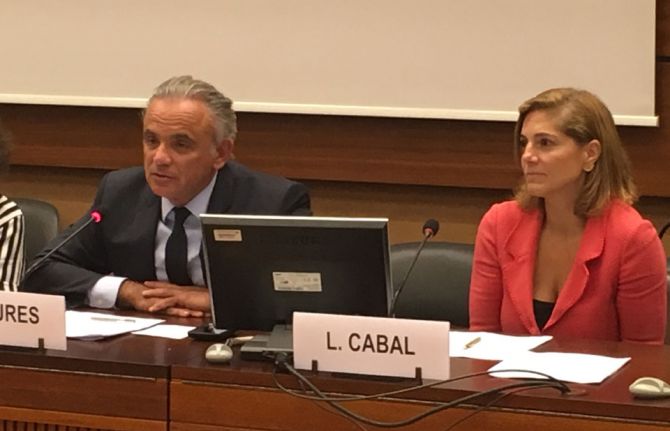
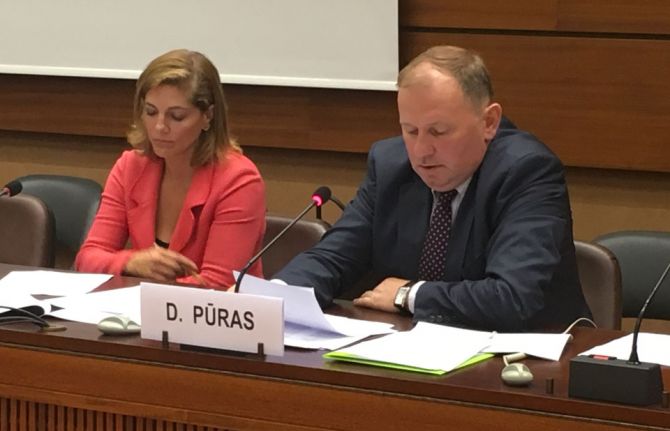
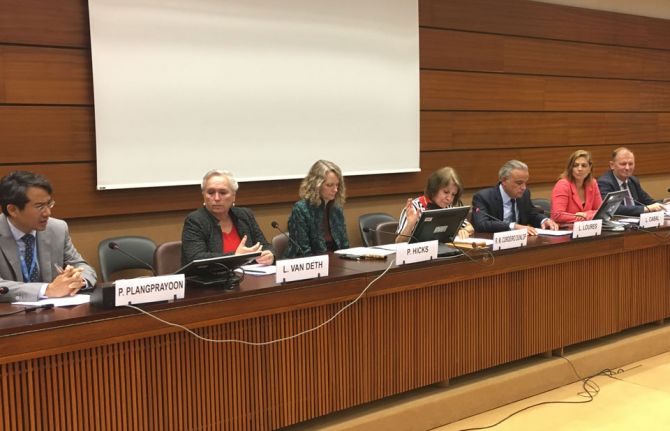
Update
Human rights—critical to ending the AIDS epidemic
28 September 2016
28 September 2016 28 September 2016At a meeting to discuss human rights and the 2016 Political declaration on Ending AIDS, panellists underscored the urgent need to protect services for women, girls, people with disabilities, migrants and displaced people. They commended the Political Declaration’s calls to integrate and promote key human rights programmes but also noted gaps and concerns, such as limited attention to the protection of key populations, including gay men and other men who have sex with men, sex workers and people who inject drugs.
The event, held on the 26 September, was hosted by the Permanent Missions to the United Nations in Geneva of Brazil, Colombia, Mozambique, Portugal and Thailand. Cosponsored by UNAIDS and the Office of the United Nations High Commissioner for Human Rights, the event took place on the margins of the 33rd session of the United Nations Human Rights Council in Geneva, Switzerland.
The Political Declaration provides a clear road map for ending the AIDS epidemic as a public health threat by 2030 and panel members urged United Nations Member States to implement their commitments to human rights in the context of ending AIDS. They also underlined that not only should human rights be central to new global efforts on AIDS, but that the Human Rights Council and other United Nations bodies must keep HIV consistently high on the human rights agenda.
Country representatives shared best practices in protecting human rights in the context of HIV, including Thailand’s efforts to reduce discrimination in health-care settings through routine training of health-care workers. Panellists also discussed the importance of the work carried out by civil society. They underscored the need for legal and regulatory barriers that restrict civil society engagement in the AIDS response to be removed and for predictable financing for civil society to be guaranteed.
Quotes
“The picture of AIDS today is that of discrimination, exclusion and violence that prevent people from accessing the services they need. We need to urgently move from the rhetoric of human rights to concrete actions to protect people who are left behind.”
“We must keep this issue on the agenda of the Human Rights Council and work as Member States to share best practices and ensure accountability for the effective implementation of human rights commitments in efforts to address the HIV epidemic.”
“I call for urgent action to protect civil society organizations, including those representing people living with HIV and other key populations, against restrictive laws and practices that hinder their work of supporting the response to HIV.”
“Stigma and discrimination continue to hamper efforts to ensure access to HIV testing, prevention and treatment services, with about 60% of people living with HIV coming to know of their diagnosis very late. The Ministry of Public Health is rolling out an accelerated system-wide stigma and discrimination reduction programme, with civil society and concerned communities committed and fully engaged.”
“I am very concerned by the huge gap between policies and practice. Civil society and communities play a critical role in making change happen and ensuring that HIV programmes work. Funding for civil society-led efforts and support to challenge the shrinking space for civil society are imperative.”
Related

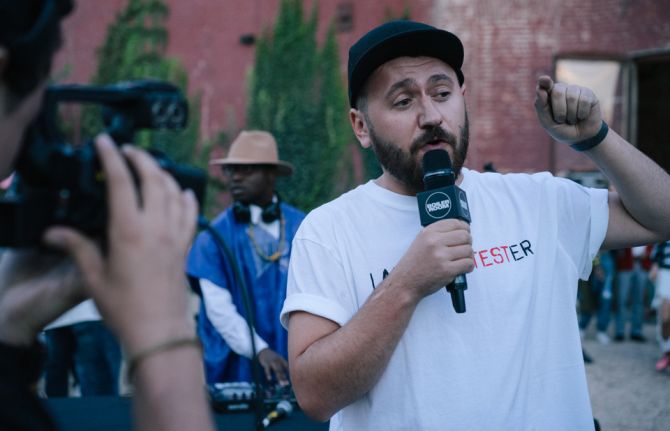
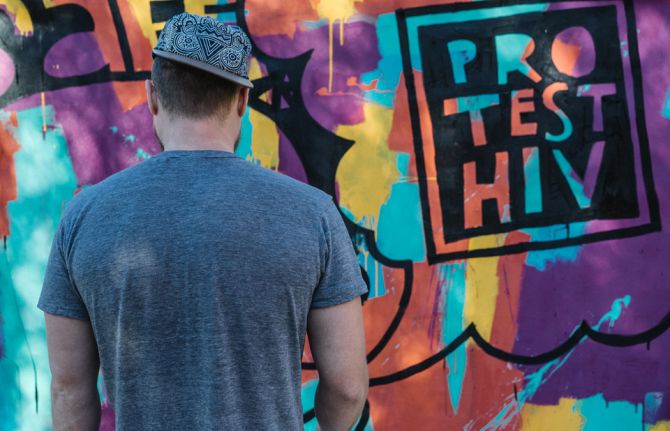
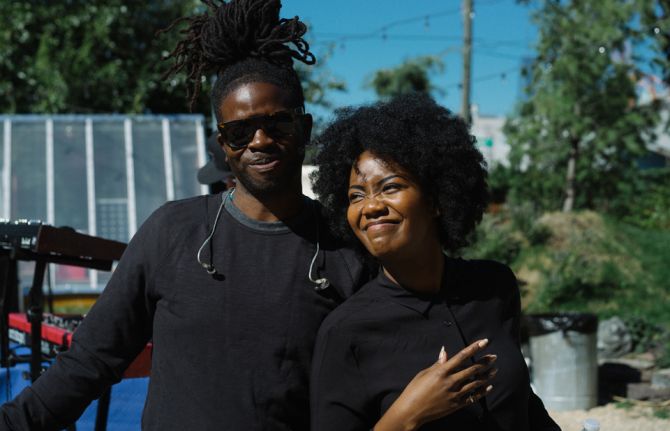
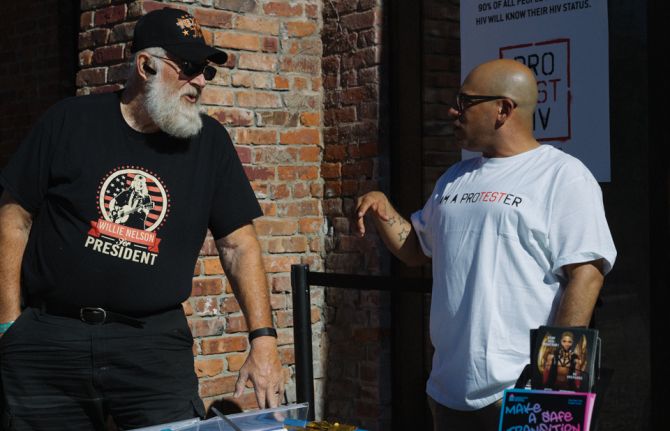



Update
Boiler Room and UNAIDS team up to promote HIV testing
29 September 2016
29 September 2016 29 September 2016UNAIDS teamed up with Boiler Room—the world’s leading community of underground music fans—to promote ProTest HIV, a UNAIDS campaign that encourages young people to get tested for HIV.
A stellar line-up of artists, including Benjamin Bronfman, Joey Purps, Kindness, Grace Weber and Young Paris, performed live from Pioneer Works, a creative arts centre in New York, United States of America, in support of the campaign. During the live event, which was produced by DreamInc, long-time UNAIDS partner Housing Works was present to provide HIV testing, counselling and support.
To reach the end of the AIDS epidemic by 2030, a Fast-Track Target was set to greatly expand HIV testing and ensure that, by 2020, 90% of all people living with HIV will know their HIV status. Engaging new partners with a wide reach is paramount to making this target a reality.
ProTest HIV is a call to action to mobilize a new generation in the AIDS response. The initiative has been developed by young people from all over the world to promote HIV testing.
Quotes
"It was very important for us to work with UNAIDS' ProTest HIV to inform our audience about the importance of knowing one’s HIV status. As Ndaba Mandela said during the show, "Charity work begins in your community", so I hope that we not only helped to raise awareness, but also inspired young people all over the world to get active themselves and influence those around them—may it be to get tested or for other activities that induce social change!"
“As a creative educational centre for people young and old, Pioneer Works was pleased to open its doors in support of ProTest HIV. Pioneer Works is a safe space for open dialogues, unique collaborations and pushing boundaries—all very important ingredients to the success of this campaign and of ending AIDS.”
“We are proud to be part of this event. It was beautiful to see how the powerful performance of these artists and their call for HIV testing moved everyone who came out to Pioneer Works as well as the hundreds of thousands of young people all around the world who tuned in online. The initiative is an innovative way of reaching young people through Boiler Room’s unique reach and authenticity.”
“ProTest HIV is a campaign that merges urban street culture with young people’s desire to want to do more in the world. We want people to get actively involved and to get tested for HIV. Stigma around HIV is still the main barrier for people to get tested and we need to change that by talking about it all the time and making it a normal thing to do.”
"During the ProTest HIV event, our team provided counselling, testing and referral to the Brooklyn community. Along with the testing, we also talked about prevention and the importance of accessing early treatment while highlighting how becoming virally suppressed contributes to ending AIDS.”
“If we want to end AIDS as a public health threat by 2030, we need to be bold. It is time to embrace innovative channels to convey our HIV messaging in a way that resonates with youth across the world. ProTest HIV was designed by and for young people with the aim of channelling the energy of technology, sports, culture and music to promote HIV testing everywhere.”

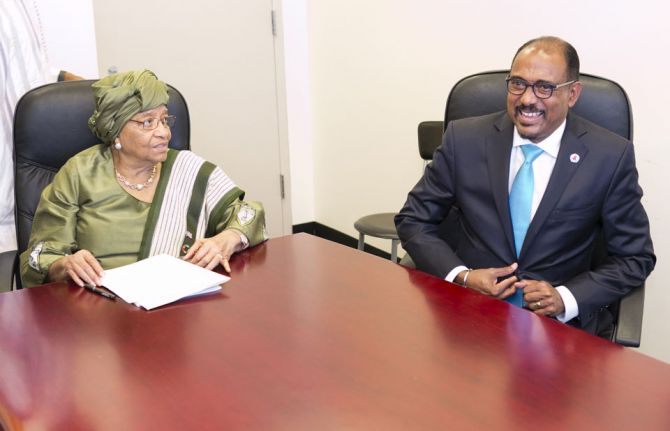
Update
UNAIDS Executive Director meets with President of Liberia, Ellen Johnson Sirleaf
23 September 2016
23 September 2016 23 September 2016UNAIDS Executive Director Michel Sidibé has met with the President of Liberia, Ellen Johnson Sirleaf, and discussed how to keep western and central Africa from sliding further behind in efforts to end the AIDS epidemic.
President Sirleaf recently assumed the role of chairperson of the Economic Community of West African States and Mr Sidibé hoped that she would use this platform and opportunity to bring leaders together to adopt an emergency plan for scaling up the AIDS response for western and central Africa.
President Sirleaf said that the country is emerging from rebuilding trust in health services after the Ebola crisis and agreed that it was time to assess what countries can do to focus and stay on course to end the AIDS epidemic.
Historically, western and central Africa has had lower levels of new HIV infections than other parts of the continent. However, new data are showing that while southern and eastern Africa has seen the number of new HIV infections decline, western and central Africa has not seen the same progress, in what is becoming an emerging emergency.
Quotes
“It is true that AIDS has not drawn the attention in this part of the world as incidence was not as high; that is not the case now and we must evaluate how we respond.”
“During your presidency you have given us hope and we are counting on you again to give hope to the region and the continent that we will end this epidemic.”
Region/country

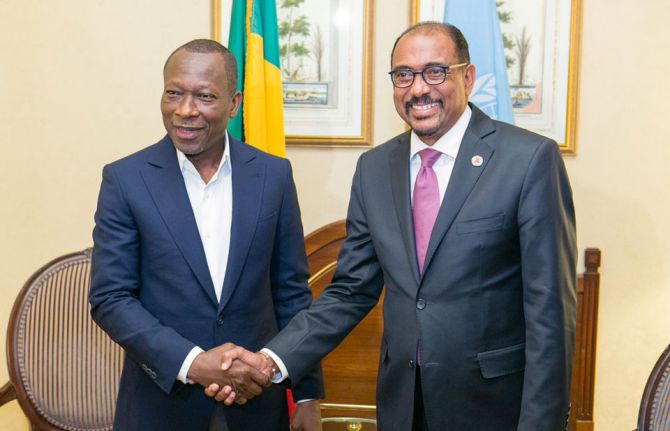
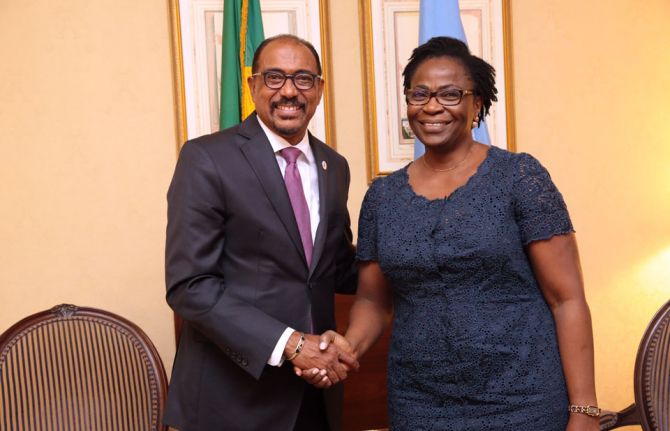
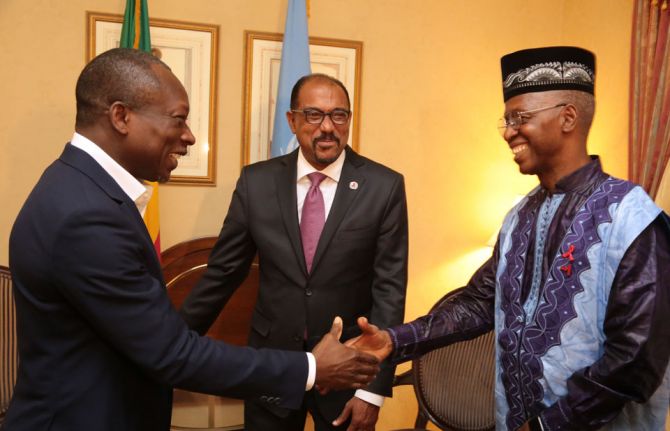
Update
UNAIDS Executive Director meets with President Patrice Talon and First Lady Claudine Talon on the importance of innovation and integration in Benin
23 September 2016
23 September 2016 23 September 2016On the sidelines of the 71st session of the United Nations General Assembly, UNAIDS Executive Director Michel Sidibé has met with the President of Benin, Patrice Talon.
Mr Sidibé praised the country for integrating HIV and health services to include tuberculosis and other epidemics, as well as Benin’s efforts to stop HIV transmission from mother to child.
President Talon said that we have the tools to end all forms of HIV transmission.
The wide-ranging conversation covered a number of issues focused on innovation and integration, including the untapped potential for local production.
President Talon and Mr Sidibé were joined by First Lady Claudine Talon, who has made health one of the issues she is championing in Benin.
Benin recently made news as one of nine countries in Africa to make contributions to the replenishment of the Global Fund to Fight AIDS, Tuberculosis and Malaria.
Quotes
“Benin is motivated. We have the tools to end HIV transmission. Excellence in health-care services will help drive economic development.”
“Your dynamic engagement on HIV, health and development will change the conversation from responding to AIDS to ending this epidemic.”
Region/country
Related

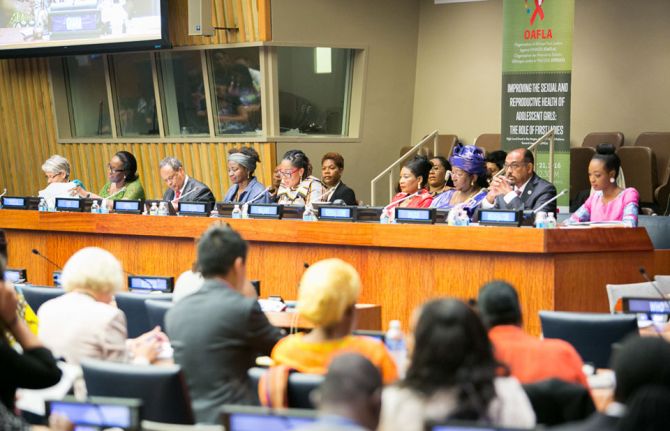
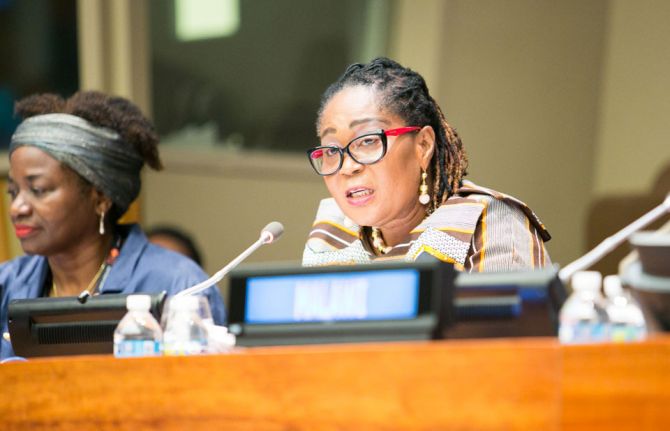

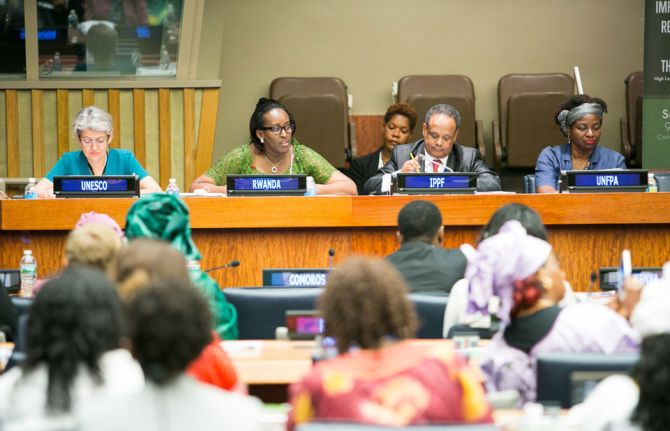
Update
African first ladies explore ways to strengthen efforts to improve sexual and reproductive health and rights
22 September 2016
22 September 2016 22 September 2016At a high-level event held on the margins of the 71st session of the United Nations General Assembly in New York, United States of America, the Organisation of African First Ladies against HIV/AIDS (OAFLA) met with partners from the private sector, civil society and multilateral organizations to discuss how to improve access to sexual and reproductive health services and rights for young women and adolescent girls.
First ladies from some 20 African countries took part in the session, during which participants reiterated their support for the 2016 Political Declaration on Ending AIDS, which includes commitments to gender equality and reducing the disproportionate impact of the HIV epidemic among young women and adolescent girls.
The first ladies heard from 14-year-old Hawaya from Chad, who at the age of 10 was married and faced violence from her husband on a daily basis. She escaped and found support just as Chad declared a ban on child marriages.
During the event the President of Namibia, Hage Geingob, joined the proceedings in support of his wife and the agenda for young women and adolescent girls. The First Lady of Japan and Yoo Soon-taek, the wife of the United Nations Secretary-General, were also present.
The Vice-Chairman of the China–Africa Business Council, Zhang Huarong, announced a donation of US$ 100 000 for OAFLA and voiced ongoing support for the first ladies’ mission.
In his remarks, the UNAIDS Executive Director, Michel Sidibé, underlined the significant role played by the first ladies both at the national level and internationally, reiterating their transformative powers and UNAIDS’ commitment to continue supporting their work.
Quotes
“I hope all my sisters are as lucky as I was to find help and that they will be safe and well.”
“Until recently young women and girls were hardly at the centre of discussion. This new focus will bring a much needed boost—we must prepare and pave the way for our girls.”
“We need to bring together all these critical areas of work, from stopping violence and child marriages to comprehensive sexual education and access to quality health care, including HIV and cervical cancer screening. And all of these services need to be tailored to the needs of young people.”















